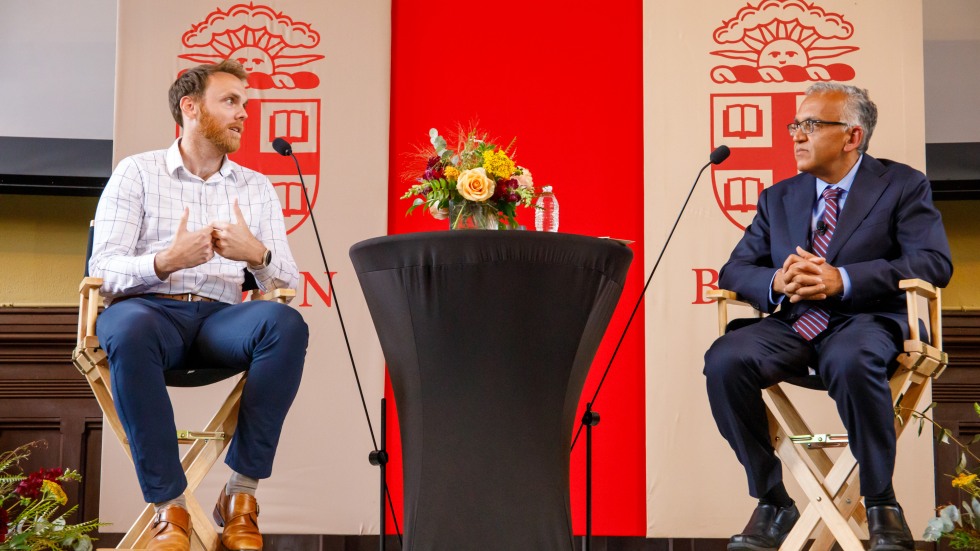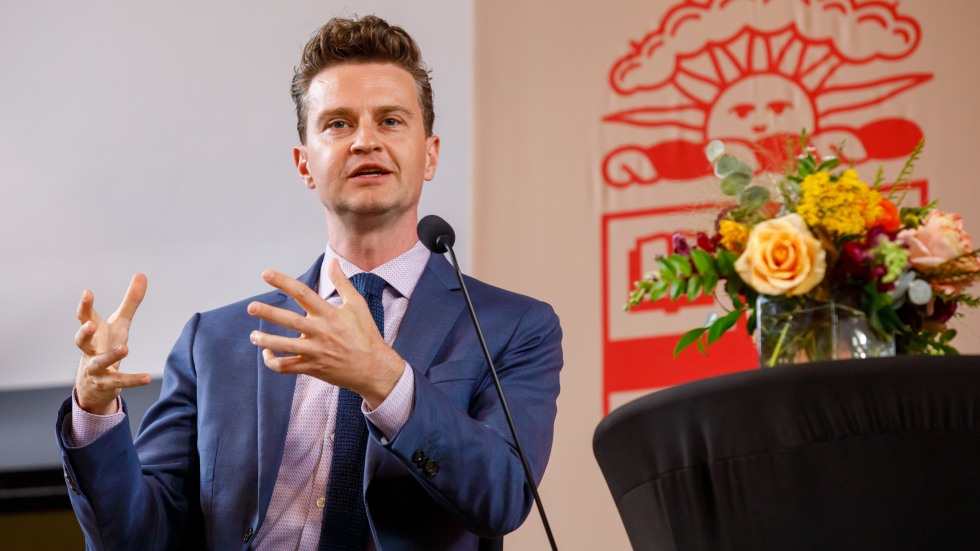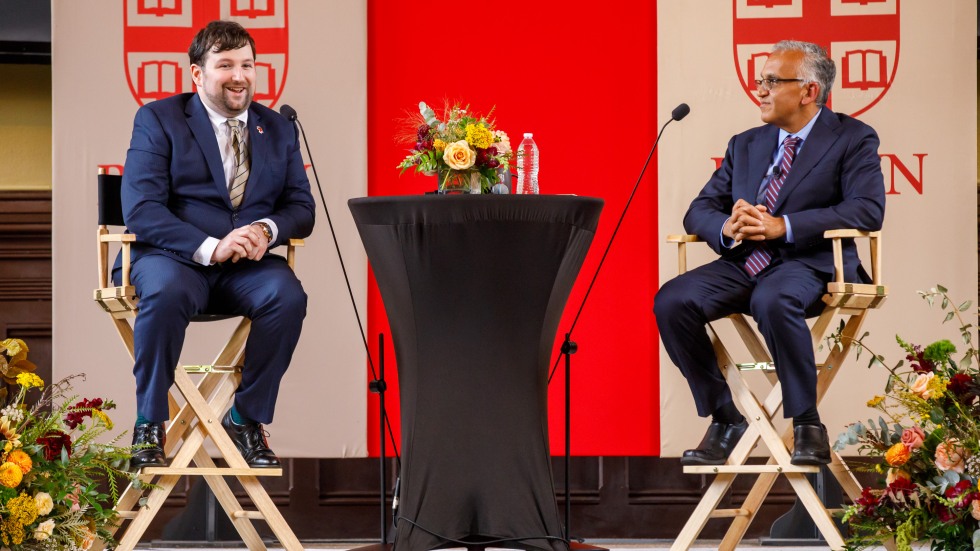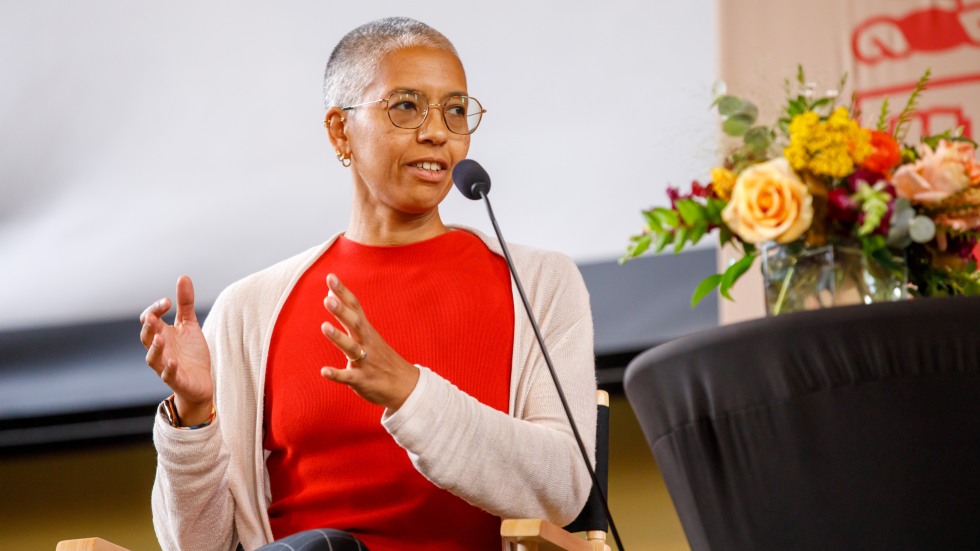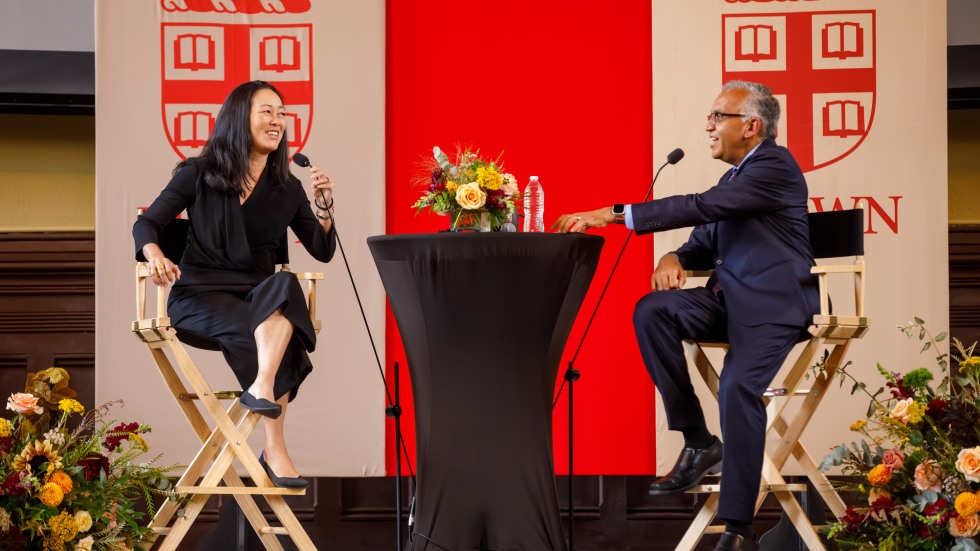In an era marked by political and financial headwinds and deep uncertainty in public health, Dean Ashish K. Jha struck a confident note in the 5th annual State of the School address on September 16, celebrating the startling achievements of the school and its community.
“We have a couple hundred people in the audience with us this afternoon, and I imagine that many of you are eager to hear the answer to the question that brings us together: What is the state of our school right now?” Jha said to the crowd gathered at Sayles Hall and joining online. “Over the five years of doing this event, that question has never been easier to answer: Our school is strong. Our school is resilient. Our school is making a difference.”
By the numbers
This academic year alone, more than 660 graduate students are actively enrolled at the Brown University School of Public Health, comprising the largest graduate class to date, while more than 150 undergraduates have chosen public health as their concentration. “These are the people who will turn their knowledge into public health practice,” Jha said. “They are the next policymakers, practitioners and researchers who will meet the challenges ahead.”
Over the last year, faculty published over 1,000 articles in peer-reviewed journals, or roughly three each day. They were mentioned in the news media over 5,000 times, from local broadcast news to the New York Times—translating and sharing their work and engaging with the public.
To create policy impact, faculty have held over 150 meetings with Congressional staff and state policymakers. They’ve submitted three testimonies to Congressional committees on urgent public issues and nine to state legislatures.

